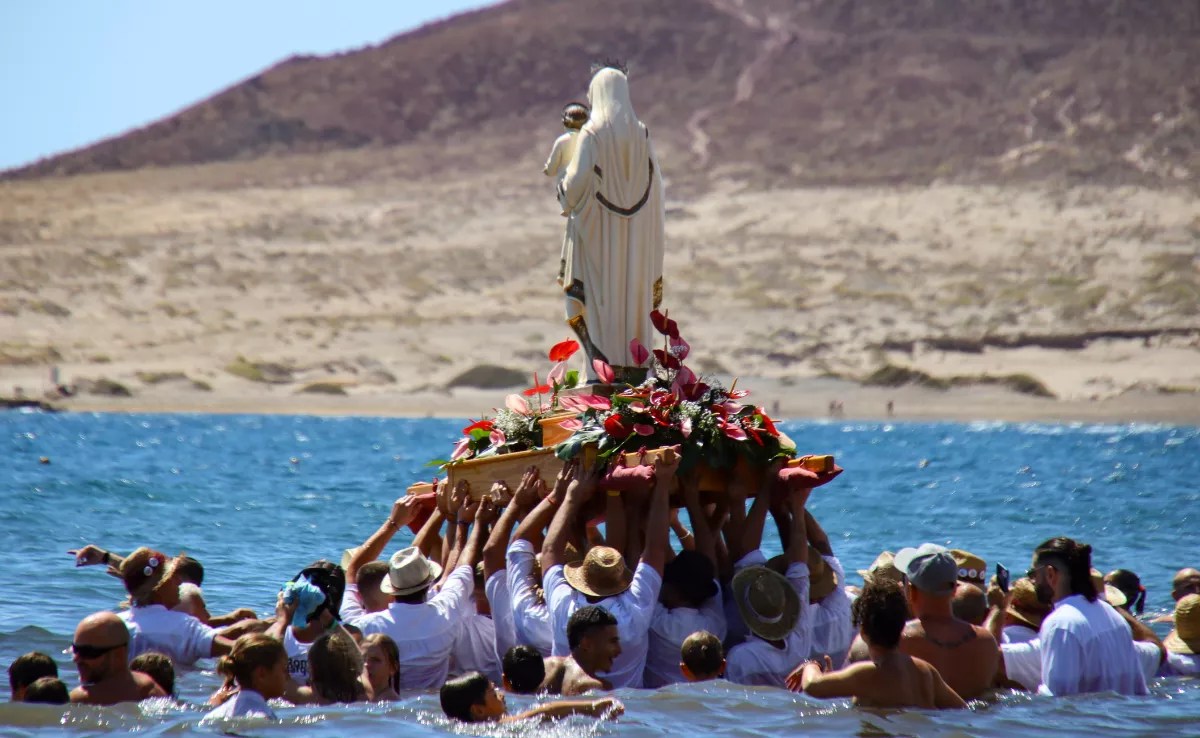
Saint José de Anchieta was the first Canarian writer in the Spanish language and was also the author of the first epic poem in America, already during his stay in Brazil, affirms the philologist Fremiot Hernández, who would like to see “what is of the Canary Islands, to trace the writings of Father Anchieta to find what was saved” from his native La Laguna.
Fremiot Hernández, former professor of Classical Philology at the University of La Laguna and who, shortly before the start of the pandemic, published a critical edition of an “Anchieta Letter” on the natural history of Brazil, speaks in an interview about the need to review the work of Anchieta, born in Tenerife in 1534 and died in Reritiba in 1597.
He will also speak on Father Anchieta as the first Canarian writer in the Spanish language at an event in La Orotava (Tenerife) on May 14, as part of the VI edition of the Cervantes Conference organized by the Alisios Cultural Association, which will be followed by a concert by the Camerata Lacunensis on texts by José de Anchieta.
Anchieta’s production was not carried out in the Canary Islands, since he left Tenerife at the age of 14 and never came back. Everything he wrote was in Brazil and was published in different places, such as Italy, Portugal and Spain, such as Anchieta’s Grammar of the Aboriginal Language, published in 1595, Hernández details.
Most of Anchieta’s texts known to date have been published but, nevertheless, some are still “waiting for someone to study them”, and, in addition, some works are being revised, including the epic poem dedicated to a Brazilian governor Of gestures Mendi de Saaolder than Ercilla’s Araucana and which is undergoing a new critical edition with a translation into Spanish in verse.
The philologist explains that Anchieta’s work is very varied, because although he was a Jesuit missionary and his writings are mostly religious, he also wrote about the flora and fauna of the region where he was found and a genus of plant bears his name. , Anchietea.
“One thing I would like is to study what is canary in Anchieta’s work, that is, to trace his writings and make an inventory of realities, images, even words that we could say: here we see something that the boy José had to carry saved from his lagoon stage ”, he adds.
Anchieta was the first Canarian to write in Spanish because he was born on March 19, 1534, that is, four and a half years before the canon of the Cathedral of the Canary Islands, Bartolomé Cairasco de Figueroa, to whom said merit was attributed.
In any case, it is in the 19th century when there is evidence of the presence of a work by Anchieta in the Canary Islands, stresses Fremiot Hernández, for whom the missionary work of the lagoon in Brazil is better known than his literary work, long forgotten, although , “Fortunately, the situation has changed and more and more people are interested in his texts, especially in Brazil.”
Although the Brazilian Ediciones Loyola, which had been publishing Anchieta’s work since 1975, has interrupted the project, the texts published to date “are available to anyone who wants to investigate and deepen” their religious, historical and linguistic aspects, especially those that have been written in languages other than Spanish, since it must be taken into account that Anchieta wrote in four languages: Spanish, Portuguese, Latin and Tupi, the language of the Brazilian aborigines.
Fremiot Hernández also recalls that next June 9 will be the 425th anniversary of Anchieta’s death in the village he founded, Reritiba, in the Brazilian state of Espiritu Santo, but which is currently named City in his honor. Anchieta.
The Padre Anchieta cultural chair of the University of La Laguna, the oldest of the Canarian universities (it was founded in 1955), the Royal Society of Friends of the Country of Tenerife and the Institute of Canarian Studies are preparing conferences and events during the week that It runs from June 6 to 10 and there will also be the presentation of the work “Los Poems Occasionals”, a publication by the professor at the University of Córdoba, Miguel Rodríguez-Pantoja.















